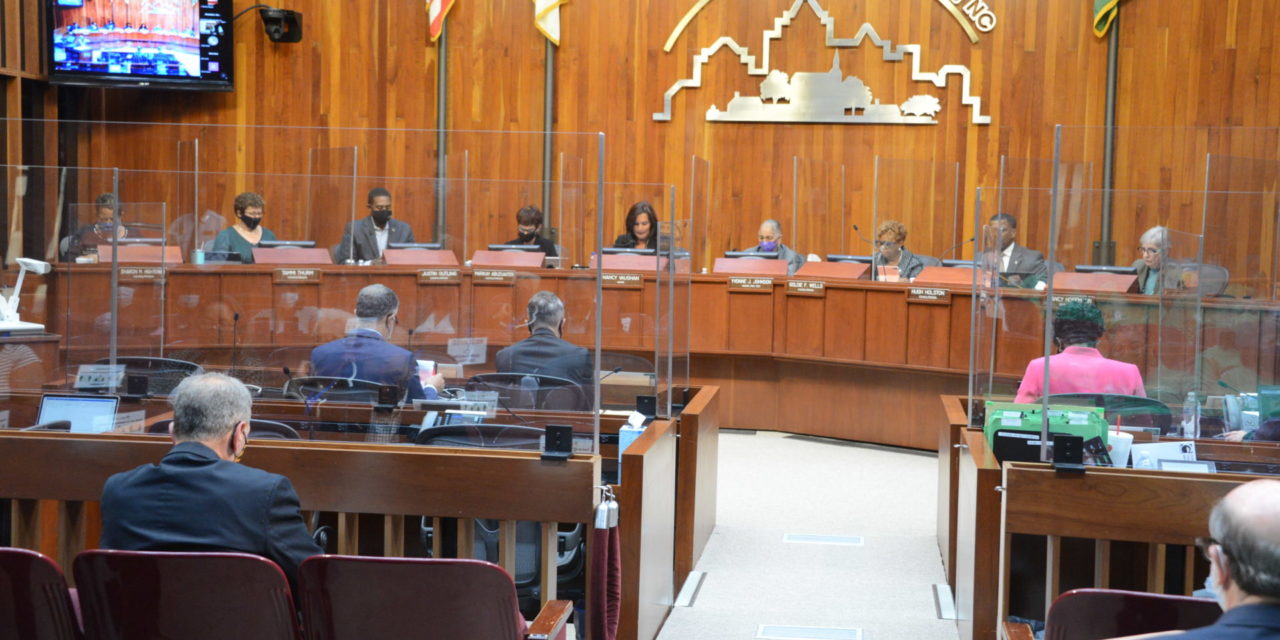City councilmembers seemed surprised and confused over the recent protest by city employees over the recent change to a step plan for employee compensation.
It almost makes you think the City Council should have listened to city staff and paid attention to the employee surveys before changing the compensation package for city employees.
The response to an anonymous survey done by the Human Resources Department last summer was that 56 percent of the employees liked the merit pay system and only 22 percent were in favor of switching over to the step plan.
City Councilmember Sharon Hightower for years had been pushing for the city to change from the merit system of awarding raises to the step system, and finally the majority of her fellow city councilmembers gave in despite the survey and the advice from their own city staff.
Under the merit system an employee’s supervisor determines their raise within the range provided, based on their evaluation.
The vote to change to the step plan in July was 5 to 4, with former Councilmember Michelle Kennedy and Councilmembers Hightower, Goldie Wells, Yvonne Johnson and Tammi Thurm voting in favor. Mayor Nancy Vaughan and Councilmembers Justin Outling, Marikay Abuzuaiter and Nancy Hoffmann voted against the motion to implement the step plan.
In previous discussions, Thurm had spoken against the step plan and only voted to support it with the caveat that next year the city could go back to the merit system.
For some employees next year is not soon enough. On Monday, Nov. 1, employees protested outside the Council Chamber and three spoke against the current pay system during speakers from the floor at the City Council meeting.
Switching over to the step plan cost the city about $100,000 in raises for employees because all the employees on the same step receive the same salary, since with the merit system employee salaries at the same step vary, employees received salary increases to raise their salaries to equal that of the highest paid employee on the same step.
A city employee who spoke at the meeting said, “With the step plan, as far as years of service, we have guys coming in the door who seem to be up close to or passing by guys who have been here for a long time.”
He said that the city needed to consider years of service in the step plan.
Vaughan said, “I believe there were five people here who voted for the step plan. I was concerned about the step plan because it really limits future raises.”
Interim City Manager Chris Wilson said, “I’m not sure what the actual concerns are.”
Wilson said he would like the time to have discussions with some employees and get some clarification about their issues.


Words fail me.
People like to be rewarded with better compensation when they perform better than their peers. Even if the difference is small, the recognition of performing above average is typically one of the highest rated employee engagement score influencers.
How would you like it if the lazy employee received the same financial growth as you the highest performer?
Not complicated.
The longevity plan they want is not based on performance, but it should be. Why would you pay someone more just for working for you a long time? The fact that they still want you there working versus getting rid of your job, is proof enough of the city’s longecity plan.
Longevity plans andn pay step systems are really union proposals that have weakened the ability of cities to be managed. Employees should be advanced to the “market” rate for their pay, and not base it on their years of service. Want to give them a fixed lump sum bonus after passing 15, 20, or 30 yrs of service? Maybe, but they want it to be a percentage of their pay which will continue to rise as their salaries continue to rise.
My guess is the city will cave on this one . . . . .to keep down the rhetoric and to ensure votes from selected districts of certain council members.